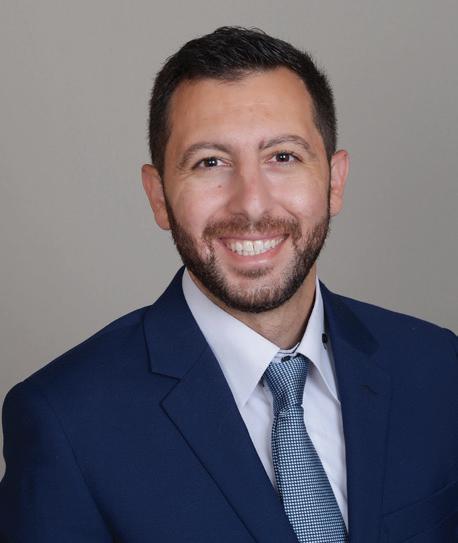
2 minute read
YANELY ITZEL BOLANOS
University of Arizona
Ybolanos@arizona.edu
Advertisement
Yanely Bolaños is an upcoming senior at the University of Arizona studying Biochemistry and Spanish with a minor in Public Health. Yanely is from Union City, California and has had a passion for working in medicine since the 4th grade. She hopes to go to medical or PA school to eventually help underserved communities. She currently is a senator for ASUA and hopes to use her job to advocate for the wildcat community. In her free time, Yanely enjoys hiking, traveling, an hanging out with her friends.
⊲ PROJECT
Targeting SELPLG/P-selectin glycoprotein ligand 1 in preclinical ARDS: Genetic and epigenetic regulation of the SELPLG promoter
The lab previously identified a missense single nucleotide polymorphism rs2228315 ( in the selectinP-ligand gene (SELPLG), encoding P-selectin glycoprotein ligand 1 (PSGL-1), to be associated with increased susceptibility to acute respiratory distress syndrome (ARDS). Earlier studies demonstrated that SELPLG lung tissue expression was increased in mice exposed to lipopolysaccharide (LPS)and ventilator-induced lung injury (VILI) suggesting that inflammatory and epigenetic factors regulate SELPLG promoter activity and transcription. By using a novel recombinant tandem PSGL1 immunoglobulin fusion molecule (TSGL-Ig), a competitive inhibitor of PSGL1/P-selectin interactions, we are able to demonstrate significant TSGL-Ig-mediated decreases in SELPLG lung tissue expression as well as highly significant protection from LPS- and VILI-induced lung injury. In vitro studies examined the effects of key ARDS stimuli on SELPLG promoter activity and showed LPS-mediated increases in SELPLG promoter activity and identified promoter regions associated with increased SELPLG expression. SELPLG promoter activity was strongly regulated by the key hypoxia-inducible transcription factors, HIF-1α, and HIF-2α as well as NRF2. These findings indicate SELPLG transcriptional regulation with the significant TSGL-Ig-mediated attenuation of LPS and VILI highly consistent with PSGL1/Pselectin as therapeutic targets in ARDS.
Christian Bime
MD, MSc Associate Professor, Medicine Cbime@arizona.edu
Christian Bime is a junior investigator whose translational research is focused deciphering the genetic and non-genetic factors that underlie the well-recognized health disparities that exist in the critically ill. Specifically, he seeks to identify biomarkers that would help stratify Acute Respiratory Distress Syndrome (ARDS) patients and better investigate novel therapies. His research focus aligns neatly with the translational systems biology research program of his mentor aimed at understanding the mechanistic basis of lung vascular permeability and on the genetic aspects of inflammatory lung injury. After two years of support by the University of Arizona Health Sciences Career Development Award (UAHS-CDA), Dr. Bime learned advanced skills in, animal biology, genetic analysis and biomedical informatics. The UAHS-CDA was instrumental in helping him generate the preliminary data for a successful NIH/NHLBI K08 grant award, currently in its second year. With continuous and close mentorship of his mentor and support from his department leadership, he is acquiring the leadership skills necessary to lead and manage a laboratory and a translational research team. These skills have allowed him to conduct the necessary preliminary work and generate data that will be critical for an RO1 grant application to be submitted to the NIH/NHLBI. Specifically, he has characterized the regulation of selectin P ligand (SELPLG) gene promoter by ARDS-associated genetic variants and explored the effects of SELPLG coding genetic variants on the activity of P-selectin ligand (PSGL1) in preclinical ARDS models. He is currently recruiting a cohort of ARDS patients at the University of Arizona that will be critical for validating identified biomarkers.





